Recovering from open heart surgery is a journey that extends well beyond the confines of a hospital room. It’s a path that involves careful attention to your body’s needs, a significant part of which is nutrition. So, you may be wondering, should I go on a diet after open heart surgery?
Well, the food you consume does play a pivotal role in not only speeding up your recovery but also in fortifying your heart’s health against future complications.
Whether you’re a patient, caregiver, or simply someone interested in heart health, this article discusses the appropriate diet after open heart surgery, showing you the path to recovery and resilience through nutrition.
Key Takeaways
- Nutrition plays a crucial role in both recovery and long-term heart health after open heart surgery. A well-rounded diet rich in essential nutrients aids in speeding up recovery, reducing inflammation, and fortifying the heart against future complications.
- Emphasis is placed on consuming whole plant foods, low-cholesterol options, protein-rich foods, and colorful fruits and vegetables. These choices provide essential vitamins, minerals, antioxidants, and unsaturated fats crucial for heart health and post-surgery recovery.
- Diet should prioritize foods like fruits, vegetables, whole grains, nuts, seeds, lean proteins, and oily fish while avoiding processed meats, high-saturated fat foods, sugary items, and processed foods. These choices help manage cholesterol levels, reduce inflammation, and promote healing.
- Adequate sleep, hydration, and regular, moderate exercise are important for recovery. It’s also crucial to follow prescribed medications, quit smoking, and limit alcohol consumption for optimal heart health post-surgery. Seeking guidance from healthcare professionals, including doctors and dietitians, is essential throughout the recovery process.
- Key Takeaways
- What Is Open Heart Surgery
- Pin It For Later
- The Role Of Diet In Post-Surgery Recovery
- Diet And Heart Health
- Key Dietary Recommendations
- Foods That Promote Healing After Surgery
- Foods To Limit Or Avoid In And After Open Heart Surgery Diet
- Side Effects & Food
- Sample Meal Plan
- Lifestyle Considerations
- Consulting With Healthcare Professionals
- Frequently Asked Question
- Final Thoughts
What Is Open Heart Surgery
Open heart surgery is a kind of surgery that involves a large cut in the chest in order to operate on the heart. This surgery is usually conducted to treat a wide variety of heart conditions such as heart failure, arrhythmias, and coronary heart disease.
There are several types of open-heart surgeries and here are the most common:
- Coronary Artery Bypass Grafting (CABG)
- Heart Valve Surgery
- Aortic Surgery
- Heart Transplant
- Surgery for Congenital Heart Defects
Pin It For Later
The Role Of Diet In Post-Surgery Recovery
Open heart surgery can have a huge impact on your body, which is why eating an appropriate diet after open heart surgery is so important!
Following surgery, it is important to nourish your body with a diet rich in essential vitamins, minerals, and energy for maintaining strength and reducing inflammation.
Consuming a well-rounded diet featuring antioxidants from vitamins and omega-3 fatty acids to combat inflammation sets you on the correct path to recovery.
Additionally, maintaining a nutritious diet after surgery is vital to preventing unwanted weight loss, ensuring you have ample energy, no muscle loss and minimizing fatigue during recovery.
This article will help you implement a diet for open heart surgery patients.

Diet And Heart Health
Eating a diet that is high in saturated fats, trans fat, cholesterol, and sodium is associated with many heart disease conditions, like high blood pressure and atherosclerosis. Foods that should be avoided are listed here.
But it’s also important to eat certain nutrients to assist with recovery and prevent a heart attack and stroke in the future. These nutrients are antioxidants, unsaturated fats, protein, soluble fiber, and nutrients like potassium, magnesium, and calcium to name a few.
Diets like the Mediterranean diet, the DASH diet, the Portfolio diet, the MIND diet and a PAD diet can provide good guidance as well.

Key Dietary Recommendations
After being discharged from the hospital, you may be wondering what to eat after open heart surgery. This list of 39 foods to unclog arteries, and 39 foods to lower blood pressure are a good place to start. Or read on as I fill you in on the details below…
Eat Whole Plant Foods
Fresh whole foods are foods that are very minimally processed, and include vegetables, fruits, whole grains (quinoa, barley, oats), olive oil, legumes (like chickpeas), and fish (1).
Whole foods are super high in fiber, vitamins, minerals, and antioxidants which all have beneficial influences on heart health (1). And, they are naturally low in nutrients we want to avoid like sodium and saturated fat.
Additionally, these foods reduce oxidative stress in the heart, controlling inflammation surrounding the heart, and preventing disease onset (1). Check out this anti-inflammatory food list for more food ideas.
Choose Low Cholesterol Foods
A lot of the foods above have been shown to help lower cholesterol as well!
It is commonly observed that eating whole plant-based foods significantly enhance heart health because they have no dietary cholesterol.
Some examples from this list of low cholesterol foods include:
Check out this 7 day low cholesterol diet plan, low cholesterol cookbooks, or low cholesterol recipes for more ways to incorporate these foods.
Find Protein Rich Foods
Eating adequate protein is an important part of a diet after open heart surgery. As a Registered Dietitian, I often see clients cut out animal meat after a heart event, but don’t replace it with heart healthy protein. This is a big mistake as it can promote muscle loss, fatigue, and overeating.
So, what does heart healthy protein look like?
Well, it is found in plant based foods (tofu, edamame, beans), lean meats (chicken and turkey), and fish. Therefore, it is best recommended that fatty red meats be limited due to their high saturated fat content.
Our body needs protein after surgery in order for muscle mass to be restored and to help restore any muscle injury that was formed during the operation. Typically, protein needs are higher post-surgery, than pre surgery.
The amino acids found in protein are responsible for repairing muscle damage, building muscle protein, and ultimately, speeding up wound healing for a fast recovery.
If you are looking to increase your protein from plants, try this great high protein hummus recipe, or this article about hemp protein vs pea protein, which are great plant based protein alternatives!
Add Color To Your Plate
Integrating colorful, plant-based foods into your meals is one of the most effective ways to enrich your diet with antioxidants and follow a diet for open heart surgery patients.
The vibrant hues found in fruits, vegetables, legumes, and whole grains are not just pleasing to the eye but are indicative of a wide variety of essential nutrients and antioxidants.
Vitamin C and vitamin E have received the most attention around their oxidant defense of the heart and encouraged to be taken in food instead of supplements such as:
Vitamin E rich foods (2):
Vitamin C rich foods (3):
Foods That Promote Healing After Surgery
| Food | Role in Healing & Types to Eat |
| Fruits / Vegetables | – Contain antioxidants, vitamins and minerals – Choose different and vibrant color fruits/vegetables such as kiwi, tomatoes, bell peppers, carrots, and berries – These foods are also high in dietary fiber which can help lower cholesterol and therefore the risk of heart disease |
| Whole Grains | – Whole grains are a complete package of nutrients, whereas refined grains are stripped away from healthy vitamins and minerals – They are a great source of dietary fiber which improves blood cholesterol and can lower risk of heart disease – Choose oats flour, oat bran, quinoa, barley, and whole grain breads more often |
| Nuts and Seeds | – These contain unsaturated fats, which are heart healthy and can help manage cholesterol levels – They provide protection for the heart and aid in healing, through their anti-inflammatory properties |
| Low Fat Dairy, Lean Meats, Plant-Based Proteins | – Low fat dairy are low in saturated fat, and a good source of calcium – Lean meats like turkey and chicken contain less saturated fats than fatty red meat such as pork shoulder – Saturated fats contribute to inflammation and plaque so they should be limited when possible – Plant based proteins like legumes (black beans, red beans and lentils) are great choices as they are low in saturated fat, rich in unsaturated fats and a source of soluble fiber |
| Oily Fish like: mackerel, salmon and sardines | – These types of fish have high sources of omega-3 fatty acids which have proven to prevent inflammation – Omega 3’s are also an unsaturated fat which has beneficial effects against heart disease – A common question I get as a Registered Dietitian is about pacific vs. atlantic salmon – Check out these great recipes: Sardine pizza, sardine dip, sardine omelet, lemon ginger salmon, low sodium salmon recipes, salmon nachos – And if you don’t eat fish, be sure to consider adding flaxseed, hemp seed or chia seed to obtain the essential omega 3s from plants |
| Smoothies | – If you don’t feel like eating, it is still important that you get all our nutrients to promote healing and prevent weight loss! – Making a smoothie is super easy and you can add in whatever you like – Check out some great heart health smoothie recipes! |
Other Tips To Consider
As mentioned, if you have a reduced appetite post-surgery but want to stick with this diet after open heart surgery, then try smoothies, low cholesterol soup, or oatmeal recipes to lower cholesterol as they are typically easier to consume than whole meals.
Other tips:
- Try to eat at home more often than going out. If you go out, check out Tim Hortons, McDonalds, Subway, and Burger King articles for healthier alternatives.
- Read food labels carefully and choose foods high in unsaturated fat, low in saturated fat, low in sodium and high in fiber.
- It is best to prepare meat by baking, broiling, poaching, steaming, sauteing, stir frying, microwaving or roasting to limit extra fat.
- Remove the skin from chicken and turkey and trim the fat to remove extra saturated fat.
- Choose lean, less marbled meats when possible to reduce saturated fat intake.
Foods To Limit Or Avoid In And After Open Heart Surgery Diet
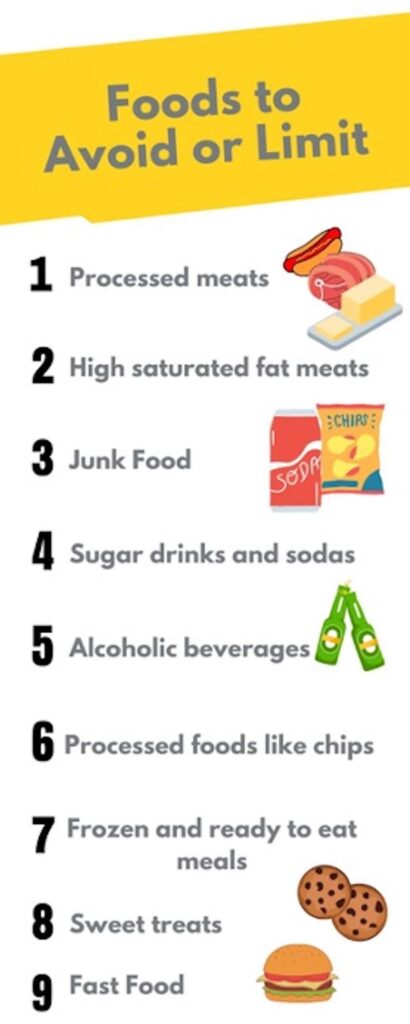
- Processed meats (hot dogs, deli meat, sausage)
- High saturated fat meats (marbled red meat)
- Junk food (chips, candy, chocolate and boxed desserts)
- Sugar sweetened beverages (soda, pop, juice)
- Processed foods like (cookies, crackers and refined grains)
- Frozen and ready to eat meals
- Sweet treats (pies, cakes and pastries)
- Fast food
You may be asking yourself why these foods are not included in the diet after open heart surgery.
Well they are high in saturated fats, added sugar, added salt and other preservatives that contribute to fluctuating blood sugar control, high blood pressure, plaque build up, weight gain, and fluid accumulation which can put excessive stress on the heart.
Furthermore, since these items are processed rather than whole foods, they are devoid of their natural nutrients and do not align with a diet for open heart surgery patients that support recovery.
Side Effects & Food
Nausea
Nausea is a common symptom after open heart surgery, but don’t worry because certain foods can help battle this!
It is important to try and eat small, frequent meals during the day, so that you’re still getting the nutrients your body needs even though you are not eating much.
Here are some foods that may help with nausea:
- Dry toast
- Crackers
- Dry cereals
- Bananas
- Applesauce
- Ginger
- Peppermint tea
Constipation
This side effect tends to be due to the lack of physical activity, reduced food intake (low fiber intake), new medications, or not drinking enough water throughout the day.
Here are a few foods to eat that may help with constipation:
- Fruits and vegetables like apples, prunes, pears, and carrots which are high in fiber
- Whole grains such as oats, to bulken up the stool and make it easier to pass
- Lentils, beans and legumes or chia seeds
Increasing dietary fiber gradually while staying hydrated is the key to manage your constipation,
Loss Of Appetite
A loss of appetite can occur from the changes in your taste buds from medications, or you may be scared to eat certain foods. Don’t worry because this is normal!
Here’s what you can do:
- Start with small meals more frequently throughout the day (for example, a piece of whole grain toast with nut butter in the morning, followed by a small bowl of fruit a few hours later)
- Smoothies can be a good way to get protein in your body, and can be more desirable then actually eating food
Sample Meal Plan
There are lots of great and delicious recipes that are easy to make following surgery, but listed here is a sample meal plan that you can use.
Breakfast: Barley Pancakes
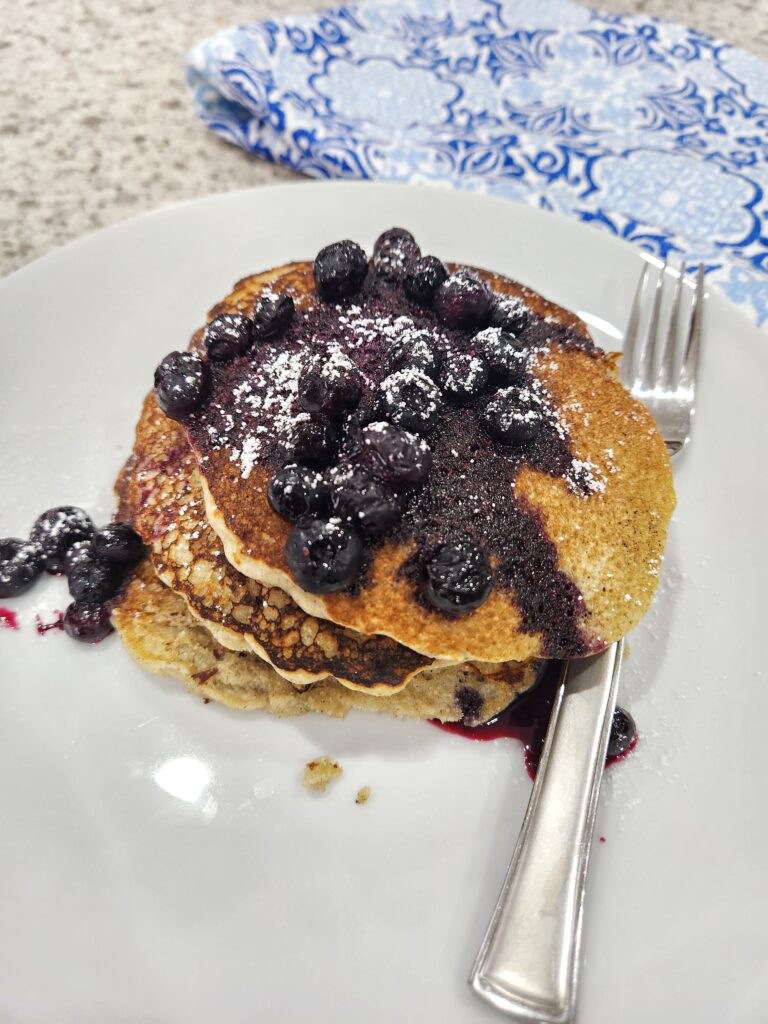
Who says you can’t have pancakes after having open heart surgery? Barley is a great source of whole grain fiber and an overall heart healthy ingredient… and makes for yummy pancakes.
Lunch: Carrot Lentil Ginger Soup
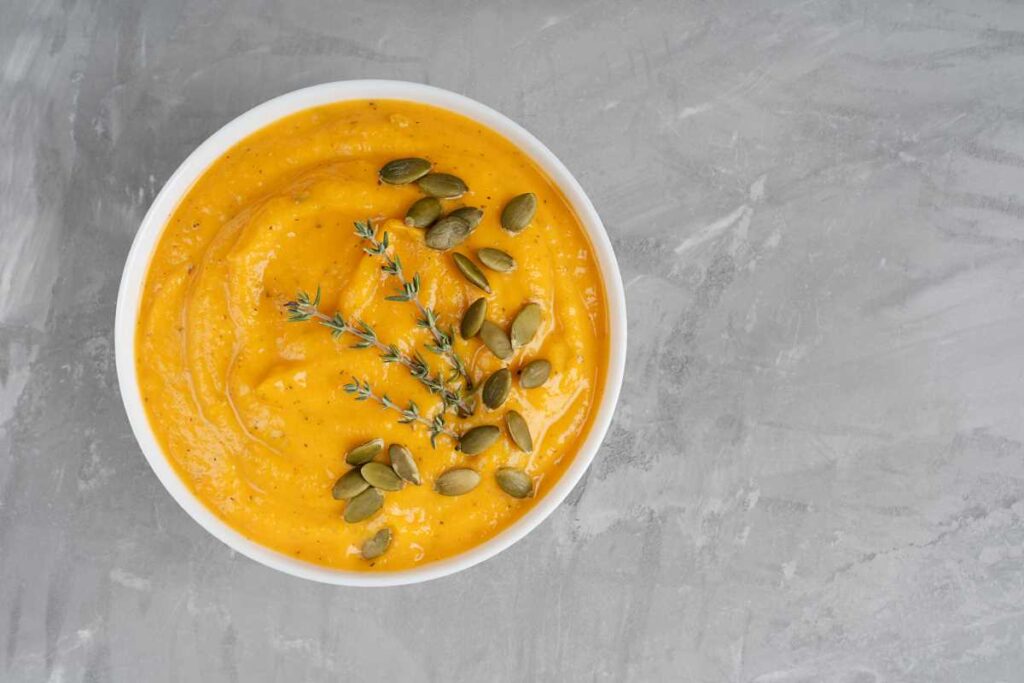
This soup is bright, vibrant and full of yummy whole foods to make your heart happy. It is a great source of soluble fiber and plant protein which is perfect for a speedy recovery and a healthy heart.
Afternoon Snack: High Protein Hummus
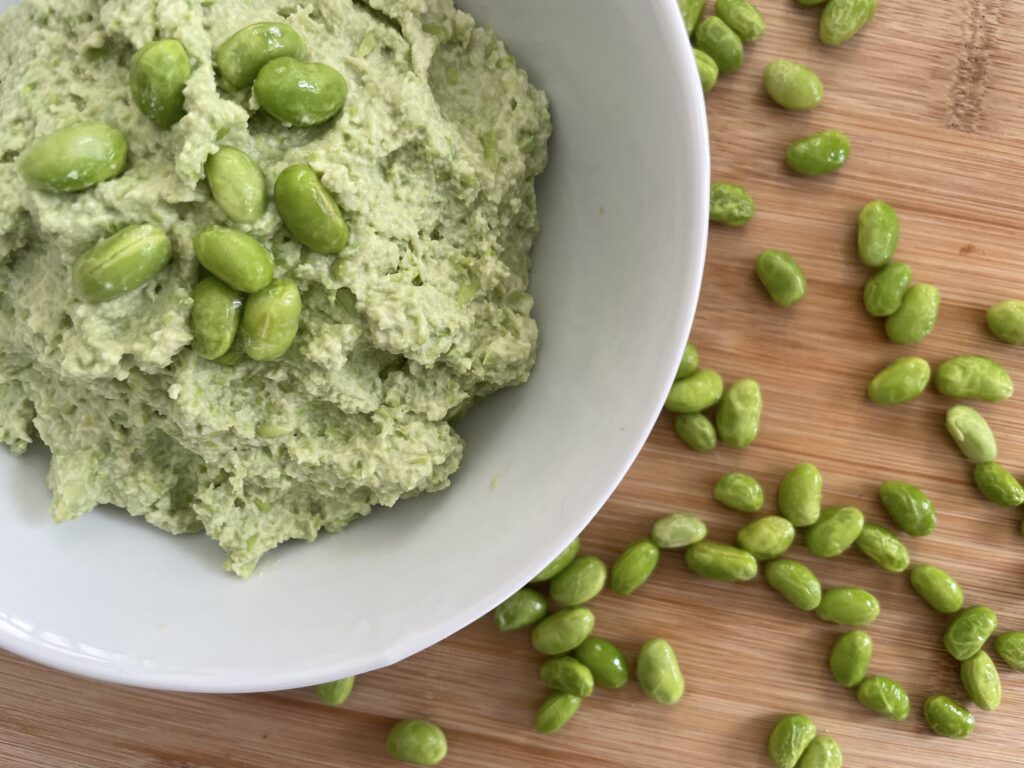
Craving a snack but don’t want to reach for the chips, try this high protein hummus using edamame. Not only high in protein to speed up your recovery, but also a great source of fiber, and monounsaturated fats. Pair with some whole grain crackers and you’re set!
Dinner: Low Sodium Marinara Sauce
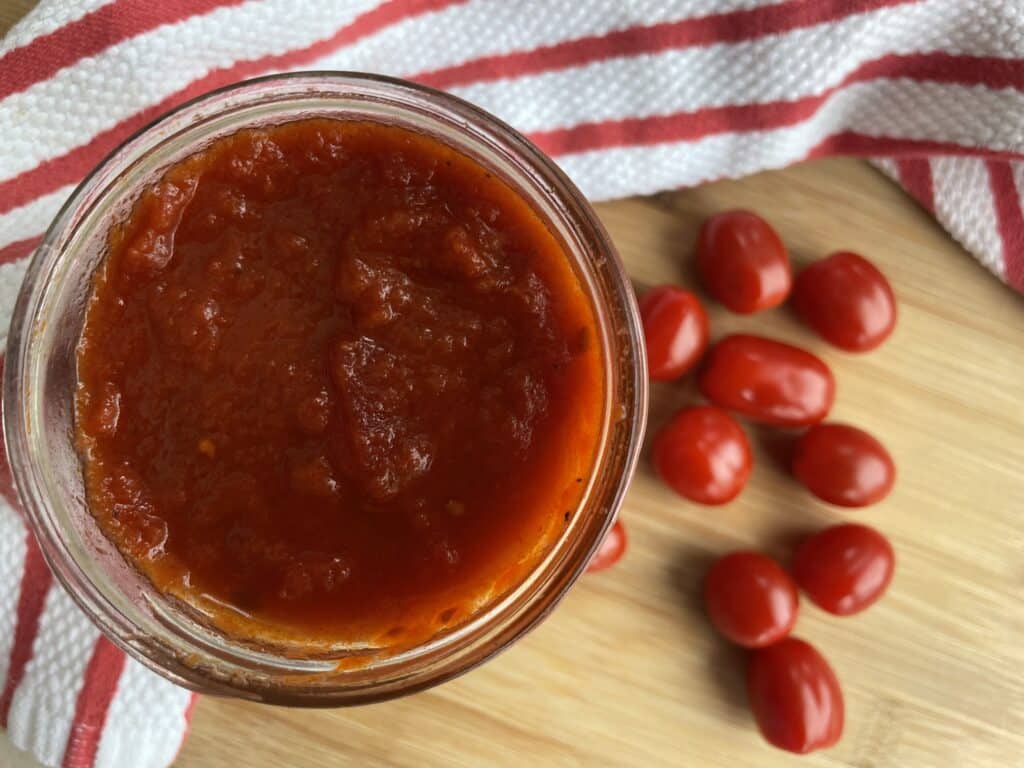
This super easy marinara pasta sauce is heart healthy, full of antioxidants and only requires a few ingredients. Make this with a whole grain pasta or chickpea pasta to ensure your intake of dietary fiber as well.
Snack: Chia Banana Bread
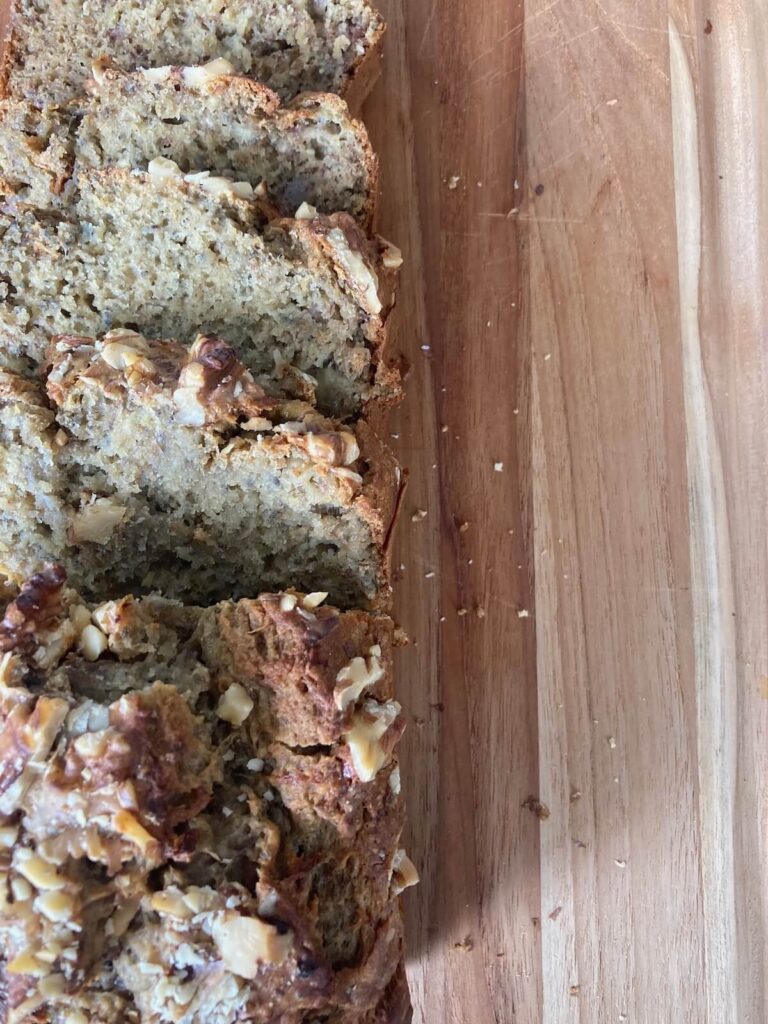
Craving a sweet treat before bed, well here is the perfect recipe! You get all the right ingredients in one snack and of course a happy heart.
Hopefully this one day meal plan gives you an idea of how to start an after open heart surgery diet.
Lifestyle Considerations
Sleep, drink lots of water (if you aren’t on a fluid restriction), and eat small frequent meals as this is important for your journey to a heart healthy life and recovery.
Getting enough sleep may be difficult following surgery, however it is important to get enough rest as it will help heal your body.
Continue taking medications as prescribed as they will help keep you on track to a speedy recovery and ensure decreased risk of complications. Doing this alongside this diet after open heart surgery, will give your body the right tools to heal itself and begin to function normally again.
When cleared by a doctor, exercise regularly or join a cardiac rehab program. Physical activity is just as important as eating a healthy diet as the benefits that exercise has on the heart can be life changing.
It is important to stop smoking and drink less alcohol once in recovery from surgery. Both of these can cause complications between medications, and the overall health of your body.
Alcohol and smoking have been shown to worsen the state of the heart, by increasing blood pressure, cholesterol and contributing to overall heart disease (4).
Consulting With Healthcare Professionals
It is vitally important to connect and keep up with doctors and dietitians following an open heart surgery. This is a multi-factorial process that requires input from many healthcare professionals.
Doctors can help prescribe the necessary medications, dietitians can help change your dietary patterns, help you follow an after open heart surgery diet and ensure you are choosing heart healthy options, and rehabilitation team members can make that last step in your recovery with physical activity.
There are people here to help you with your recovery so don’t forget, you are not alone!
Frequently Asked Question
How Can I Give My Body The Calories And Protein It Needs If I’m Not Hungry?
This is a great question and here are some ways you can get the necessary calories and protein during the day:
- Add protein to every meal and snack so that at the end of the day you’ve eaten enough
- The foods you can eat, make them nutritious like steel cut oats granola and greek yogurt, tofu toast topped with avocado, or a pea smoothie filled with nutrients that you can drink
- Eat what you can in the moment even if you are not hungry so you are still getting the necessary calories for energy
Final Thoughts
Open heart surgery can be scary! But this after open heart surgery diet heart surgery will help you head in the right direction of optimal healing and recovery.
At the end of the day, don’t forget that surgery recovery can be a long process and it is just as important to take care of your mental well being. It can upwards to 3 months for full recovery, so self compassion is just as important as the foods we eat.
What’s in your diet after open heart surgery? Tell me below in the comments! I would love to hear from you.
Written by Christina Taptelis, Nutrition student and reviewed by Veronica Rouse, MAN RD, CDE.

